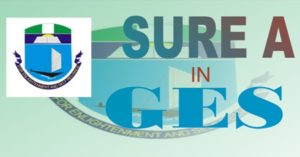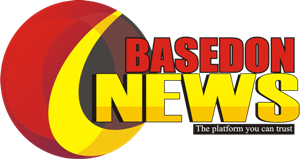Practice Questions for Uniport GES 300 Exams – Download PDF of Fundamentals of Entrepreneurship Exam Questions

Practice Questions and Past Questions for Uniport GES 300 (Fundamentals of Entrepreneurship) Exams – This article comprises of questions that would prepare you towards this forth coming examination. These questions are gotten from all the topics covered in the GES 300 Textbooks.
Contents
How is Uniport GES Exam
GES examination is a computer based examination in the University of Port Harcourt. After writing the exam, the score will pop up immediately displaying your score over 50 and over 70. The remaining 30 marks will come from your GES Work Book which you’ve submitted.
How to Get Close to Raw Information about your GES
To be always updated with General information regarding to schools and how to get scholarship that will assist your family, you can LIKE our Facebook page for direct updates. Also, use your Email address to subscribe to the site for FREE. If you need help comment below.
How many marks do they give in GES workbook
Though the mark fluctuates sometimes, but last session, 25 marks were given to every student that submitted his or her GES workbook. So, whatever you score on the exam day will be added to the 25 marks given you your real score.
Practice questions for Uniport GES 300
These questions are not guaranteed that it must come out on your exam day, you can still read your textbook, past questions, then practice with this one to enable you see miscellaneous questions you would see on the exam day.
- Customers buy products to satisfy first their ____ a. Self b. Image *c. Need d. Want
- Entrepreneur is significant in all EXCEPT_______ a. Income redistribution b. Employment potential c. Promote local technology *d. Frowns at self reliance
- All are challenges of SMEs EXCEPT_______ a. Creating awareness for the product b. Providing benefits and value to the customers c. Getting acceptance by their target audience *d. Quit break even
- Marketing research process has how many key stops _______ a. 3 *b. 4 c. 7 d. 5
- The first step in market research is to _______ *a. Define the opportunity problem b. Design the method c. Develop the solution d. Collection of data
- The function that links the organization to its market through the gathering of analysis of information is ______ a. Product development b. Data analysis *c. Marketing research d. Advertising
- Market intelligence collects data on happenings on all EXCEPT_______ a. Competitors offerings *b. Ownership/Entrepreneur history c. Customer purchase trend d. Product/price changes
- Marketing research is a misplaced activity for SMEs_______ a. True *b. False c. None of the above d. Only a and b
- Which one of these is inexpensive alternative to survey myth? a. Archival research b. Systematic observation *c. Cross-section survey d. Secondary sources
- ____ is not a theory of business growth in Nigeria a. Franchising theory b. Acquisition theory *c. Personality Theory d. Organic Theory
- When one firm purchase of high strength purchase over the other, it is referred to as ________ a. Franchise b. Leasor *c. Acquisition d. Merger
- Reasons for unethical behaviours among Nigerian entrepreneurs are all EXCEPT____ a. Low income b. Poor moral background *c. Strong code of ethic d. Weak sanctions
- Ethical culture can be created by entrepreneur through all EXCEPT one ________ a. Be a visible role model b. Communicate ethical expectations c. Provide ethical training *d. Reward mediocre
- _____ is the ability of the business organization to act responsibly towards its internal and external publics a. Ethics b. Consumers *c. Corporate social responsibility d. Citizenship
- Ethics is good in business because of all EXCEPT ________ a. Corporate reputation b. Shareholder’s trust c. Long term sustenance of organization *d. Employee turnover
- Family business is business that____ a. Owned and managed by a person b. Owned and run by a family member *c. Owned and managed by family members d. Owned and managed by blood relation only
- An example of family business that have grown top among the list of five best in the world is ______ *a. Wall Mart b. Sony c. Agofure d. Ibru
- The three circle model encompasses all EXCEPT one ________ a. Family b. Ownership *c. Production d. Management
- ______ is a world known entrepreneur in Microsoft business. a. Chief Femi Otedola b. Alhaji Aliko Dangote *c. Bill Gates d. Walt Disney
- _______ was a University drop-out who eventually became a successful entrepreneur. a. Chief Femi Otedola b. Alhaji Aliko Dangote *c. Bill Gates d. Walt Disney
- The entrepreneur sees business opportunities only when ______ *a. He is creative, regularly scans the environment, and can see beyond the ordinary b. He has cash and connection c. He has God father in business d. He sells fake items
- The characteristics of a successful entrepreneur include all, EXCEPT______ a. Adaptability *b. Changing the environment c. Innovative mindedness d. Analytical capability
- Which is not the difference between an entrepreneur and a manager______? *a. Environmental analysis b. Ownership status c. Risking bearing d. Reward structure
- The difference between entrepreneur and other businessmen is that______ *a. He is creative, values relationships, and delivers customer superior values b. He believes in transaction paradigm c. He takes business secret d. He cheats the customers
- Entrepreneur is someone who demonstrates initiatives and creative thoughts and is able to organize socio-economic mechanism to turn resources and situations practically and accepts risks and failures ______ *a. True b. False c. None of the above d. All of the above
- Opportunity recognition involves______ The ability to identify high-potential ones b. The ability to identify low-potential ones *c. All of the above d. None of the above
- The entrepreneur’s environment defines the _____ *a. Factors and actors that influence decision-making b. The internal factors only that influence decision making c. The external factors only that influence decision-making d. Economic factors that influence decision-making
- All are the macro-environmental forces to be considered by an entrepreneur, EXCEPT _____ Technology b. Economy c. socio-politics *d. Suppliers
- What is the critical reason for engaging in entrepreneurship? a. Make profit b. Play 419 c. Pay tax *d. Create value
- The documents required of an entrepreneur to register his business in Nigeria are amongst others_____ a. memorandum and articles of association b. Address of registered office c. list and particulars of directors *d. All of the above
- The entrepreneur does the following fundamental management functions _____ *a. Planning, organizing, directing, co-ordinating, and controlling b. Planning, organizing, directing, fashioning and controlling c. Informing, organizing, directing, co-ordinating and controlling d. Planning, organizing, directing, co-ordinating and reporting
- One of the options is not a critical setback to an entrepreneur _____ a. inability to see and tap opportunities b. funds c. Human capital *d. Government encouragement \
- _____ foster entrepreneurship in mature market create a. Opportunity *b. Necessity c. Innovation d. Commitment
- The factor spurring entrepreneurship in rapid growth market create _____ a. Opportunity b. Necessity *c. Innovation d. Commitment
- The sources of funding entrepreneurial ideas includes but one_____ a. Equity *b. Copying c. Debenture d. Personal savings
- The tendency of perceive ambiguous situations as desirable is_____ a. Locus of control b. Need for achievement *c. Risk taking propensity d. Tolerance for ambiguity
- Major factors that influence the core process of opportunity recognition and development include the following EXCEPT ________ a. Entrepreneurial alertness b. Social networks *c. Entrepreneurial posture d. Prior knowledge
- Social entrepreneurship achieves its goals by achieving the following_____ a. Being passionate in the community b. Helping communities to define their problems c. Being community friendly *d. All of the above
- Innovation represents goods, services, ideas, practices and opinions that are_____ a. The first in the industry b. One of the first in the industry c. The last in the industry *d. The first or one of the first in the industry that has the capability of building for a firm a competitive advantage
- Who amongst these is a know scholar in innovation_____ a. Professor Ivan Pavlow *b. B. F. Skinner c. Professor Everette Rogers d. Abraham Maslow
- Early studies on entrepreneurial career choice focused on one of the following_____ a. Unemployment b. Wealth creation c. Inflation *d. None of the above
- One of the following is a determining factor of why people choose to become entrepreneurs _____ *a. Attractiveness of an enterprise b. Availability of funds c. Entrepreneurship education d. Paying taxes to the government
- _____ provides a cognitive framework that endows meaning, belief and value and explains the differences in entrepreneurial intentions a. Geography b. Top echelon *c. Culture d. GDP
- Schumpeter (1934) observes that change is a catalyst for entrepreneurial activities, thus, stable environments offer entrepreneurial opportunity_____ a. True *b. False c. None of the above d. All of the above
- Knowing the behavioural manifestations of entrepreneurship, we measure the entrepreneurial levels in the following ways EXCEPT_____ a. Reliably *b. Profitably None of the above d. All of the above
- Which best defines an industry? a. A place goods and services are manufactured b. A manufacturer of heavy duty machines *c. A group of firms that compete amongst themselves d. A seller of goods and services
- A typical example of a manufacturing industry is _____ a. Agriculture b. Mining c. Labour Market *d. Automobile
- The father of scientific management is_____ Henri Fayol b. Frank Gilbert c. Elton Mayo *d. F. W. Taylor
- Who is associated with the Hawthorne experiment and human relations management? _____ a. Henri Fayol b. Frank Gilbert *c. Elton Mayo d. F. W. Taylor
- Which is not a basis for assessing opportunities? _____ Net present value (NPV) b. Break-even approach c. Linear programming (LP) *d. Balance sheet
- In terms of Derr’s success measures, entrepreneurship means the following EXCEPT_____ a. Getting ahead b. Balance *c. Making money d. Autonomy
- _____ involves extending the firm’s domain of competence and corresponding opportunity set through internally generated new resource combinations a. Firm entrepreneurship b. Independent entrepreneurship c. Organizational entrepreneurship *d. Corporate entrepreneurship
- Generally entrepreneurial firms emphasize the following EXCEPT____ a. Technological leadership b. Product leadership Research & Development leadership *d. All of the above
- Risk returns trade-off emphasizes ____ *a. The more the risk, the more the returns b. Risk equals returns c. Risk less than returns d. Invested cash
- The internet turns the world flat means that ____ *a. Size and location are no more barriers to entrepreneurs Size is no more barriers to the entrepreneurs c. Location is no more a barrier the entrepreneurs d. Entrepreneurs are equal
- Cash-flow statement is broken into____ a. cash-flow from operating activities b. cash-flow from investing activities *c. All of the above d. Cash paid for dividend
CLICK HERE TO READ SUMMARY OF GES 300 TEXT BOOK
CLICK HERE TO DOWNLOAD PDF OF GES 300 QUESTIONS AND ANSWERS
Note: if there is any complain or challenge or if you need any help, kindly Comment Below.
Don’t fail to read your textbook before answering these questions
Don’t depend only on this… there is possibility of changes
There is no full assurance that these questions will come out… but we believe it will guide and direct you to study harder.
Goodluck … Go and make your A
If this is helpful… Comment Below… Also, share your score with us by commenting in the box below.
